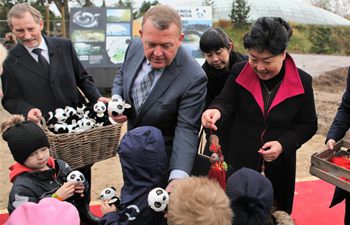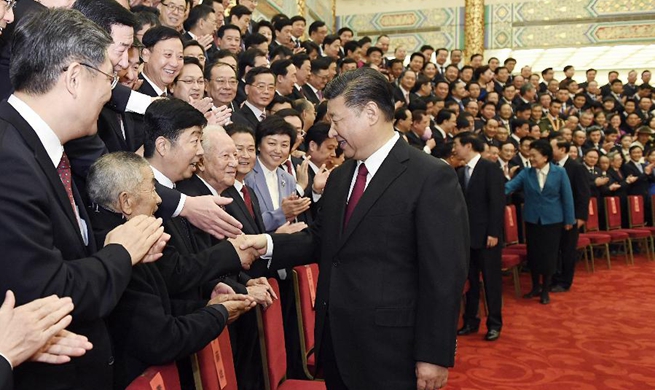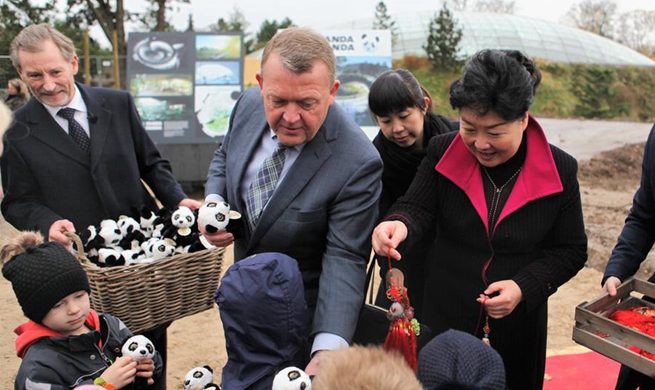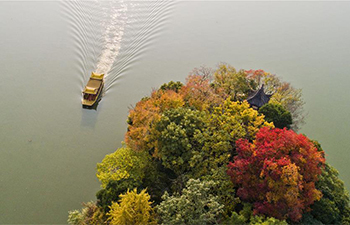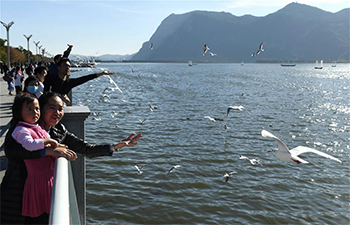CHONGQING, Nov. 17 (Xinhua) -- Jiang Xiaochun, 78, a former factory worker in southwest China's Chongqing Municipality, is even busier since retiring.
Every day, she spends hours weeding, pruning trees and collecting garbage in the Nanhu Residential Community, where she and another 24,000-plus residents live.
Jiang is a volunteer with the environmental protection club, which is among the 41 volunteer clubs at Nanhu set up by residents since 2015.
More than 20 percent of residents now work as volunteers in the community to offer services such as water and electric facility maintenance, building repairs, security patrol, legal counselling and medical treatment.
Covering an area of one square kilometers, Nanhu has 81 residential buildings, most of which were built in the 1980s.
Unlike other residential communities in China, Nanhu does not use a property management company. Instead, its residents manage the community by themselves through the volunteer clubs.
"Old buildings, out-of-date infrastructure... the living environment was really poor in the past," said Zhang Qi, Party secretary with Nanhu. "Many people have moved to new and modern residential communities."
"Nobody took care of the buildings' external repairs and regular maintenance. We didn't have gardeners, security patrollers or garbage collectors," said Jiang.
In 2014, the community received more than 1,600 complaints from residents related to the bad living environment.
"The community committee of Nanhu has fewer than 20 staff and we cannot resolve their problems in a short time," said Zhang. "The most effective governance is to get people involved."
With the help of the community committee, more clubs were set up. They opened an online platform to collect residents' requests for service. Last year, the volunteers served residents more than 30,000 times.
To meet the demands of more than 10,000 retired seniors and enrich their lives, Nanhu has also set up several recreational clubs, such as a choir and square dancing.
"All of the community's meeting, training and exhibition rooms are available free of charge for these activities," said Zhang.
Xia Hu, 71, has lived in Nanhu for years. Last year, he joined a stamp collection club, which has about 100 members.
Every two months, the club holds a free stamp exhibition and a lecture for residents.
"We have collected more than 300,000 stamps, and every stamp has its story. We hope our residents will enjoy their time when they come to our exhibitions and lectures," said Xia.
In China, a residential community, also known as residential unit, is an urban residential area. Chinese local governments, particularly in big and developed cities, have attempted many ways to govern communities.
According to a report at the 19th National Congress of the Communist Party of China last month, China will strengthen its system for community governance, shift the focus of social governance to the community level, leverage the role of social organizations, and see that the government's governance efforts, self-regulation by society and self-governance by residents reinforce one another.
Jiang's environmental protection club has attracted 200 volunteers since it was set up in 2015, and more residents are interested in joining.
"As the living environment has been improved, we have a stronger sense of belonging and happiness," said Jiang.








